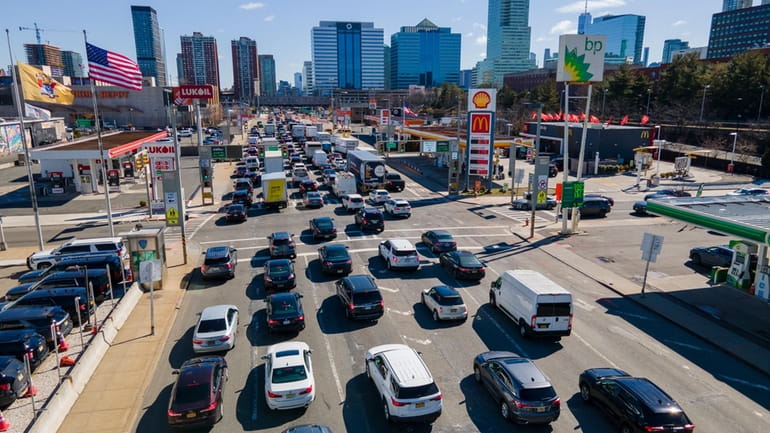MTA congestion pricing, how police deal with mentally ill

If the congestion pricing fee is actually about vehicles causing congestion, why is the MTA charging people who are not part of any congestion, a reader asks. Credit: AP/Ted Shaffrey
MTA pricing plan gives me congestion
I work an overnight schedule. I enter the Queens Midtown Tunnel to drive across Manhattan around 2:35 a.m. The only congestion I encounter is from my postnasal drip when my allergies act up.
However, according to the congestion pricing plan, I am still going to have to pay [“MTA congestion pricing gets final approval,” News, March 28].
If this fee is actually about vehicles causing congestion, why is the Metropolitan Transportation Authority charging people who are not part of any congestion?
— Matthew Moskowitz, Plainview
The Metropolitan Transportation Authority continues to pay loads of overtime [“Record $1.42B in overtime from MTA for last year,” News, April 1]. How will they continue to afford that? Congestion pricing, of course. Can the MTA be trusted with this influx of the “taxation-without-representation” stipend?
— Andrew Siegel, Farmingdale
Crisis programs could help police
Far too many of our loved ones with mental illness have been shot and killed by police [“NYPD: 19-year-old in ‘mental distress’ fatally shot,” News, March 28]. How many more will die before we finally commit to reforming our crisis response systems in New York State?
Last year in October, Alan Weber, 54, was killed by Suffolk County police officers in his Elwood home, just days after neighbors contacted police with concerns about his mental well-being.
Now, a Queens teenager, Win Rozario, who was in “mental distress,” died with his mother by his side after New York City police could not deescalate the crisis situation. The 19-year-old grabbed a pair of scissors. The police had tasers and guns.
The proposed state budget includes a needed $2 million to fund pilot programs that would implement racially just, trauma-informed crisis programs to respond to the type of scenarios that led to the deaths of Weber and Rozario.
— Rebecca Bonanno, Huntington
The writer is a member of Long Island United, which addresses transforming policing and community safety.
WE ENCOURAGE YOU TO JOIN OUR DAILY CONVERSATION. Just go to newsday.com/submitaletter and follow the prompts. Or email your opinion to letters@newsday.com. Submissions should be no more than 200 words. Please provide your full name, hometown, phone number and any relevant expertise or affiliation. Include the headline and date of the article you are responding to. Letters become the property of Newsday and are edited for all media. Due to volume, readers are limited to one letter in print every 45 days. Published letters reflect the ratio received on each topic.
